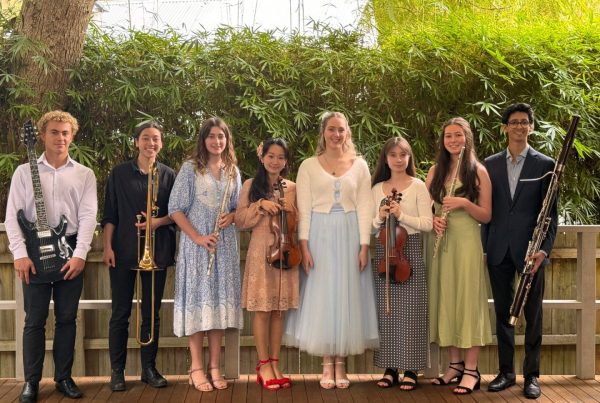Lisa Graham-Wisener, Queen’s University Belfast and Tracey McConnell, Queen’s University Belfast
Grief has always inspired songwriters. Popular songs including Let Me Go, by Gary Barlow, Eric Clapton’s Tears in Heaven and The Living Years by Mike and the Mechanics, were all written as a way of working through the grief of losing a loved one.
Tears in Heaven deals with the sudden loss of Clapton’s four-year-old son. The Living Years addresses the songwriters’ mutual regrets over disagreements with their fathers while they were alive.
The songs are as poignant and heartrending as you might expect from something written about close family bereavement.
Barlow’s Let Me Go, however, is a remarkably upbeat and joyful record, written from the perspective of the pop star’s stillborn daughter, Poppy.
Barlow has said that writing the song in the voice of his daughter helped keep her memory alive and offered an opportunity for celebration as well as grief.
But you don’t have to be a famous musician for music to play a role in helping you to work through grief.
Music helps communicate the unspeakable
Music can help people cope with grief in a variety of ways. It can help create connection with a deceased loved one. It can help those grieving to explore spirituality (hope and meaning in life) and deal with challenging emotions. Many people have an intimate connection to the songs that have helped them through bereavement.
Music therapy harnesses people’s innate connection to music as a means of expression. The therapy helps them communicate and deal with emotions that might otherwise be overwhelming, painful and hard to put into words.
The therapy is conducted by a professionally trained music therapist, using activities like singing, playing instruments, writing lyrics or listening to music to help patients and their loved ones navigate end-of-life and bereavement. This could include helping to improve communication and intimacy between the patient and loved ones, aiding spiritual exploration or even managing physical pain and symptoms.
Music therapy boasts a rich history in end-of-life care, supported by a growing body of academic evidence.
As part of our previous research, we offered music therapy to people with life-limiting illnesses, such as terminal cancer, in hospice care. The research suggested that music therapy may not only be of benefit to patients, but also to their loved ones. Music can evoke positive memories and allows a depth of communication that can’t always be achieved through words.
Music therapy at end of life, then, can help provide a more comforting environment to say goodbye to a loved one and helps create a unique, lasting memory to hold onto after they die.
It is common for music therapists working in end-of-life care settings to include the person’s loved ones in their therapeutic practice. This suggests there is demand and recognised value in music therapy as a support for people both before and after the death of their loved one. But what does the evidence tell us?
Preventing prolonged grief disorder
Along with our colleagues, we conducted a systematic review to identify all the research published worldwide on music therapy with loved ones of people with life-limiting illness, before and after death.
We discovered a total of 34 studies, which used music therapy in different ways. For example, by supporting people with life-limiting illness and their loved ones within the same session or by bringing groups of loved ones together. We found that no conclusions could be made on the effectiveness of music therapy as a form of bereavement support, as there was a lack of high-quality trials.
However, rich accounts of people’s experiences of music therapy provided insight into how it can influence the ability to cope with grief and improve quality of life and mental wellbeing.
Music therapy also seemed to protect against prolonged grief disorder or complicated grief (when someone experiences debilitating long-term emotional distress after a bereavement). Family and loved ones of people with life-limiting illness shared how music therapy helped reduce depression, anxiety, family conflict, poor perceived social support, difficulty accepting loss, and difficulty accessing positive memories – all of which are warning signs of complicated grief
Our research review showed that group singing “fostered feelings of connection, awareness, and support”. Other studies with loved ones also shared insights into how music therapy helped them prepare for the loss of their loved one, and increased their spirituality.
The care industry is increasingly seeing the importance of social connections when it comes to supporting the grieving process. This is especially important in a post-pandemic world where the risk factors for complicated grief such as depression, anxiety and poor perceived social support have been heightened through severing of personal relationships and community groups.
A report by The World Health Organization recently suggested that the arts can help improve health and wellbeing by addressing complex problems, such as prolonged grief, which are resistant to other more conventional treatments. This suggests there may be an important role for music therapy in bereavement support.
Lisa Graham-Wisener, Lecturer of Health Psychology, Queen’s University Belfast and Tracey McConnell, Marie Curie Senior Research Fellow , Queen’s University Belfast
This article is republished from The Conversation under a Creative Commons license. Read the original article.





